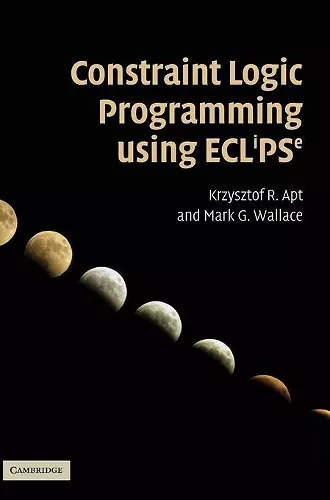Constraint Logic Programming using Eclipse
Mark Wallace author Krzysztof R Apt author
Format:Hardback
Publisher:Cambridge University Press
Published:21st Dec '06
Currently unavailable, and unfortunately no date known when it will be back

This textbook offers an introduction to the Eclipse system and a guide to problem-solving for students and practitioners alike.
Aimed at one-semester courses and programmers wishing to master practical aspects of constraint programming; the book teaches understanding and how to write constraint programs that solve complex problems. It also systematically introduces the Eclipse system through carefully-chosen examples, guiding readers through the language and illustrating its power, versatility and utility.Constraint logic programming lies at the intersection of logic programming, optimisation and artificial intelligence. It has proved a successful tool in many areas including production planning, transportation scheduling, numerical analysis and bioinformatics. Eclipse is one of the leading software systems that realise its underlying methodology. Eclipse is exploited commercially by Cisco, and is freely available and used for teaching and research in over 500 universities. This book has a two-fold purpose. It's an introduction to constraint programming, appropriate for one-semester courses for upper undergraduate or graduate students in computer science or for programmers wishing to master the practical aspects of constraint programming. By the end of the book, the reader will be able to understand and write constraint programs that solve complex problems. Second, it provides a systematic introduction to the Eclipse system through carefully-chosen examples that guide the reader through the language and illustrate its power, versatility and utility.
'… a valuable addition to the canon of CP texts. It provides a well-exampled introduction to ECLiPSe as its CP language.' Peter J. Stuckey, Theory and Practice of Logic Programming
'The principle strengths of the book are the clarity of the writing and the use of well chosen examples. The programs are very well written, with efficiency considerations often subtly included. After digesting the book, and trying out examples and exercises in ECLiPSe, a reader will come away with solid grasp of CP, and the flexibility of ECLiPSe.' Theory and Practice of Logic Programming
ISBN: 9780521866286
Dimensions: 253mm x 178mm x 22mm
Weight: 853g
348 pages